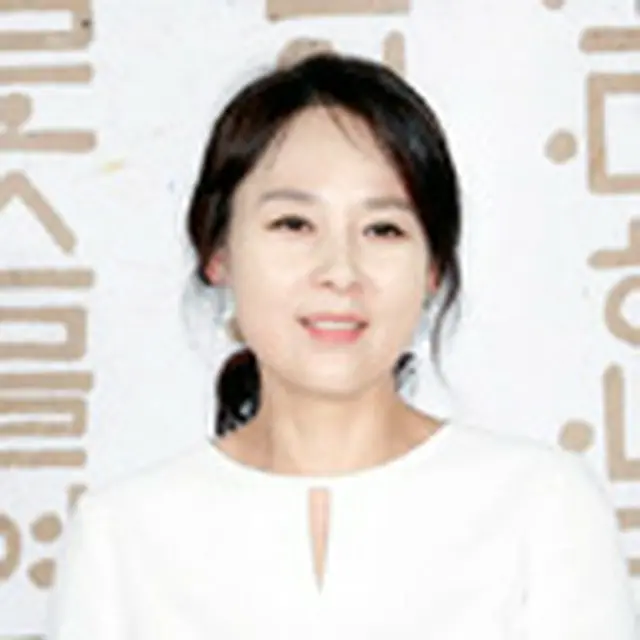Hwang Jini
- English:Hwang Jini
- Korean:황진이
- Original Network: KBS(2006)
- Aired: 2006/10/11 - 2006/12/28
Cast
Summary&Synopsis
Hwang Jini (Korean: 황진이) is a TV Series. Broadcasting starts on October 11, 2006. The broadcast ended on December 28, 2006.
The broadcasting station is KBS (2006). A TV series depicting the turbulent life of Joseon's best geisha, Hwang Jin-hee.
The setting is the 16th century. Ha Ji Won, who was born in a Yangban family and became Joseon's best geisha, wrote poetry, prose, songs, and gayageum.
He is known as a person who excels in a wide range of performing arts, including , goomungo (Korean koto), painting, and dance. Hwang Jin-hee, who overcame prejudice during the Joseon Dynasty, when there was severe gender discrimination, and constantly raised the flag of rebellion.
What is a lifetime? . The Korean TV series ``Hwang Jin-i'' depicts the life of Hwang Jin-i, the greatest geisha of Joseon who lived in real life, and is a person that every actress admires. The person who won the title of heroine was
Ha Ji Won returned to the TV series for the first time in three years. The film required intense filming, learning classical dance, classical instruments, tightrope walking, etc., but he spared no effort to become Hwang Jin-hee.
She played the role of the heroine with perfect preparation. In addition, a movie version of ``Hwang Jin-i'' was also produced at the same time as the TV series, and Song Hye Kyo will play Hwang Jin-i on screen.
Candidates for the role of Hwang Jin Hee included actress Soo Ae, Lee Youg Ae, Kim Tae Hee, and Jeong JIHYO Ng, but in the end Ha Ji Won was chosen.
Hwang Jini (黃眞伊, 1506 ~ 1567) was a poet, gisaeng, writer, calligrapher, musician, and dancer of the mid-Joseon Dynasty. During the reign of King Jungjong and Myeongjong (early to mid-16th century)
An active gisaeng, her other name is Jinrang (眞娘), and she is also known by her gisaeng name Myeongwol (明月). During the reign of King Jungjong, she was the daughter of Jinsa with the Hwang clan surname of Gaeseong.
He was born, and his biological father is not known. In addition to poetry, painting, and dance, he was also well-versed in Neo-Confucianism and the Four Books and Six Classics, and was associated with noblemen and monks.
He had extensive Neo-Confucian academic knowledge, was good at writing poetry, and was good at drawing. By forming various relationships with many scholars, he traveled around the country.
He went on tours and left behind many poems and paintings during his travels. However, due to the Japanese Invasion of Korea and the Manchu War, most of the remaining
As his works became synonymous with obscenity, they were undervalued, poorly preserved, and most of them were destroyed. Jijok Zen Master, who was called Saengbul at the time, was trained for 10 years.
He caused the expulsion from the Myeonbyeok capital, broke the arrogance of a royal family named Byeokgyesu, who was famous for his bravery, and seduced Seo Gyeong-deok, the greatest hermit scholar of the time.
He was even more famous for his outstanding talent and outstanding appearance. Due to the nature of his status, the name Hwangjin does not appear in the official history, and in various
Information about him has been passed down through historical records. He also had extensive knowledge of Neo-Confucianism, and attempted to seduce scholar Hwadam Seo Gyeong-deok.
It is also said that it failed. It is also called the 3rd section of Songdo along with Seo Gyeong-deok and Bakyeon Falls, and its representative works include “Manwoldae Reminiscence Poem” and “Bakyeon Falls Poetry.”
Throughout the Joseon Dynasty, it was considered a symbol of obscenity and its mention was taboo, but it has become the subject of oral tradition and folk tales.
The broadcasting station is KBS (2006). A TV series depicting the turbulent life of Joseon's best geisha, Hwang Jin-hee.
The setting is the 16th century. Ha Ji Won, who was born in a Yangban family and became Joseon's best geisha, wrote poetry, prose, songs, and gayageum.
He is known as a person who excels in a wide range of performing arts, including , goomungo (Korean koto), painting, and dance. Hwang Jin-hee, who overcame prejudice during the Joseon Dynasty, when there was severe gender discrimination, and constantly raised the flag of rebellion.
What is a lifetime? . The Korean TV series ``Hwang Jin-i'' depicts the life of Hwang Jin-i, the greatest geisha of Joseon who lived in real life, and is a person that every actress admires. The person who won the title of heroine was
Ha Ji Won returned to the TV series for the first time in three years. The film required intense filming, learning classical dance, classical instruments, tightrope walking, etc., but he spared no effort to become Hwang Jin-hee.
She played the role of the heroine with perfect preparation. In addition, a movie version of ``Hwang Jin-i'' was also produced at the same time as the TV series, and Song Hye Kyo will play Hwang Jin-i on screen.
Candidates for the role of Hwang Jin Hee included actress Soo Ae, Lee Youg Ae, Kim Tae Hee, and Jeong JIHYO Ng, but in the end Ha Ji Won was chosen.
Hwang Jini (黃眞伊, 1506 ~ 1567) was a poet, gisaeng, writer, calligrapher, musician, and dancer of the mid-Joseon Dynasty. During the reign of King Jungjong and Myeongjong (early to mid-16th century)
An active gisaeng, her other name is Jinrang (眞娘), and she is also known by her gisaeng name Myeongwol (明月). During the reign of King Jungjong, she was the daughter of Jinsa with the Hwang clan surname of Gaeseong.
He was born, and his biological father is not known. In addition to poetry, painting, and dance, he was also well-versed in Neo-Confucianism and the Four Books and Six Classics, and was associated with noblemen and monks.
He had extensive Neo-Confucian academic knowledge, was good at writing poetry, and was good at drawing. By forming various relationships with many scholars, he traveled around the country.
He went on tours and left behind many poems and paintings during his travels. However, due to the Japanese Invasion of Korea and the Manchu War, most of the remaining
As his works became synonymous with obscenity, they were undervalued, poorly preserved, and most of them were destroyed. Jijok Zen Master, who was called Saengbul at the time, was trained for 10 years.
He caused the expulsion from the Myeonbyeok capital, broke the arrogance of a royal family named Byeokgyesu, who was famous for his bravery, and seduced Seo Gyeong-deok, the greatest hermit scholar of the time.
He was even more famous for his outstanding talent and outstanding appearance. Due to the nature of his status, the name Hwangjin does not appear in the official history, and in various
Information about him has been passed down through historical records. He also had extensive knowledge of Neo-Confucianism, and attempted to seduce scholar Hwadam Seo Gyeong-deok.
It is also said that it failed. It is also called the 3rd section of Songdo along with Seo Gyeong-deok and Bakyeon Falls, and its representative works include “Manwoldae Reminiscence Poem” and “Bakyeon Falls Poetry.”
Throughout the Joseon Dynasty, it was considered a symbol of obscenity and its mention was taboo, but it has become the subject of oral tradition and folk tales.






